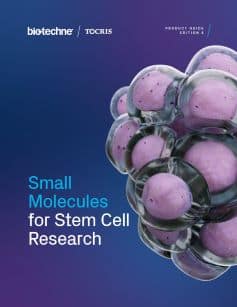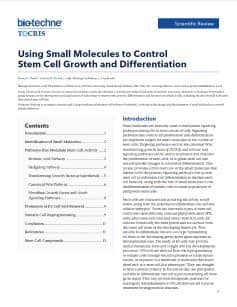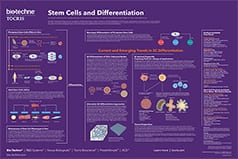Hepatocyte Stem Cells
There are thought to be three distinct populations of hepatocyte stem cells, although how the three populations work together is not fully understood. Hepatocyte stem cells are being investigated for their regenerative medicine capabilities and for their uses in drug toxicity screening.
| Cat. No. | Product Name / Activity |
|---|---|
| 3850 | Sodium butyrate |
| Directs differentiation of mESCs into hepatocytes; HDAC inhibitor |
There are thought to be three distinct populations of hepatocyte stem cells, although how the three populations work together is not fully understood.
Hepatocytes themselves are reported to be stem cells in their own right. Hepatic trauma induces a rapid regenerative response to restore damaged liver cells through hepatocyte self-replication. More sever hepatic injury can activate a second population of hepatocyte stem cells, which are located within the intrahepatic biliary tree. These cells can differentiate into hepatocytes and biliary epithelial cells. The third population of hepatocyte stem cells are found in the bone marrow; these hepatocyte stem cells are reported to have the greatest impact on liver regeneration.
In vitro studies have already shown proof-of-principle for liver organogenesis from both embryonic stem cells (ESCs) and induced pluripotent stem cells (iPSCs). As the science progresses, hepatocyte stem cells are likely to pave the way for liver transplantation, without the need of a donor. Hepatocytes are also a promising tool for drug toxicity screening of potential drug candidates.
Literature for Hepatocyte Stem Cells
Tocris offers the following scientific literature for Hepatocyte Stem Cells to showcase our products. We invite you to request* your copy today!
*Please note that Tocris will only send literature to established scientific business / institute addresses.
Stem Cells Scientific Review
Written by Kirsty E. Clarke, Victoria B. Christie, Andy Whiting and Stefan A. Przyborski, this review provides an overview of the use of small molecules in the control of stem cell growth and differentiation. Key signaling pathways are highlighted, and the regulation of ES cell self-renewal and somatic cell reprogramming is discussed. Compounds available from Tocris are listed.
Stem Cell Workflow Poster
Stem cells have potential as a source of cells and tissues for research and treatment of disease. This poster summarizes some key protocols demonstrating the use of small molecules across the stem cell workflow, from reprogramming, through self-renewal, storage and differentiation to verification. Advantages of using small molecules are also highlighted.



